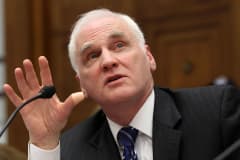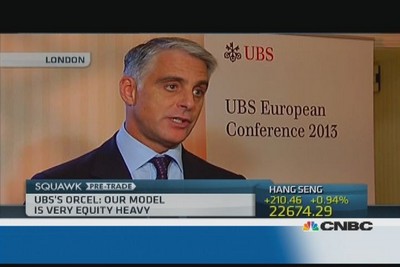Fed's Tarullo details plans to counter bank runs
Fed's Tarullo details plans to counter bank runs

Fed's Tarullo details plans to counter bank runs
|
|
|

Getty Images
Federal Reserve Board Governor Daniel Tarullo.
Global regulators need more policy tools to counter the risk of devastating bank runs and should have powers over a wide array of market participants, U.S. Federal Reserve Governor Dan Tarullo said on Friday.
"There is a need to supplement prudential bank regulation with a third set of policy options in the form of regulatory tools that can be applied on a market-wide basis," Tarullo said at a conference on shadow banking.
He also detailed the Fed's plans to write new rules that would make it less attractive for banks to raise cash in short-term wholesale funding markets, a key factor in the collapse of Lehman Brothers in 2008.
Banks that substantially rely on short-term funding in the interbank market should be required to hold more capital on top of what is already mandated by international rules under the so-called Basel III pact, Tarullo said.
Tarullo, who is the central bank's main policymaker on financial regulation, announced earlier this year that the Fed was working on a short-term funding rule.
Biggest risk is regulatory environment: UBS's Orcel
Andrea Orcel, CEO of UBS Investment Bank, says tough regulation could cause headwinds to the business in the future.
He said that international regulators should also consider ramping up capital requirements for matched books of repurchasing—or repo—agreements, which are a prominent part of the shadow banking system.
"Current versions of capital and liquidity standards do not deal with matched book issues," he said.
(Read more: Policing banks: The feds' big fail)
Thirdly, regulators should address risk in such transactions regardless of whether they were executed by banks or by other market participants, such as hedge funds.
The Financial Stability Board, in which global regulators cooperate, was already working on plans to do so, Tarullo said, but he said he disagreed with some of the details and presented some alternative ideas.
—By Reuters

No comments:
Post a Comment